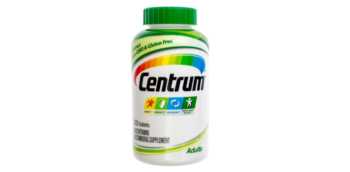
Answer:
ConsumerLab.com does two things to help people with gluten-sensitivity know whether or not products are gluten-free:
First, in the Results table within each of our Product Reviews, we indicate (in the "Notable Features" column) which products claim to be "gluten-free."
Second, ConsumerLab tests for gluten in products claiming to be "gluten-free" for select, popular categories of products. Gluten testing has been performed on Protein Powders and Drinks, Nutrition Bars (protein, fiber, meal replacement and fruit and nut bars), and on grains, such as Oat Cereals (steel-cut, rolled oats, oat bran and Cheerios). The gluten-free claim, as defined by the FDA means that the amount of gluten in a product is less than 20 parts per million. However, since gluten sensitivity is a function of total exposure, ConsumerLab applies a more stringent gluten requirement of less than 5 parts per million when serving sizes are greater than 5 grams or 5 ml; and for nutrition bars claiming to be gluten-free, we applied a requirement of less 3 parts per million.
Be aware that for those who do not have celiac disease, non-celiac gluten sensitivity, or wheat allergy, there is no data to support the purported health benefits of a gluten-free diet, according to an analysis in the Journal of Pediatrics. The analysis noted that because gluten-free foods are often higher in saturated fat and sugar than their gluten-containing counterparts, maintaining a gluten-free diet can lead to insulin resistance and obesity, deficiencies in B vitamins, folate and iron, and increased exposure to heavy metals (such as arsenic in rice). The prevalence of the celiac disease in the U.S. is estimated to be less than 1% (although, interestingly, a high proportion of this 1% appears to go undiagnosed). The prevalence of gluten/wheat sensitivity, in which gluten-containing foods can produce symptoms but celiac disease is not present, is estimated to be between 0.5% and 6% (Reilly, J Pediatr 2016). If you are considering a gluten-free diet due to physical symptoms, consult your healthcare provider first, as removing gluten from your diet can make celiac disease more difficult to diagnose.
Also be aware that following a gluten-free diet may lead to deficiencies in certain nutrients depending on the foods you choose.
Join today to unlock all member benefits including full access to all CL Answers and over 1,400 reviews.
Join NowAlready a member? Sign In Here.
Join now at www.consumerlab.com/join/












Submit your comment
This feature is restricted to active members.
Join now to add comments and get all member benefits, including over 1,400 reviews.
Join NowAlready a member? Sign in here.